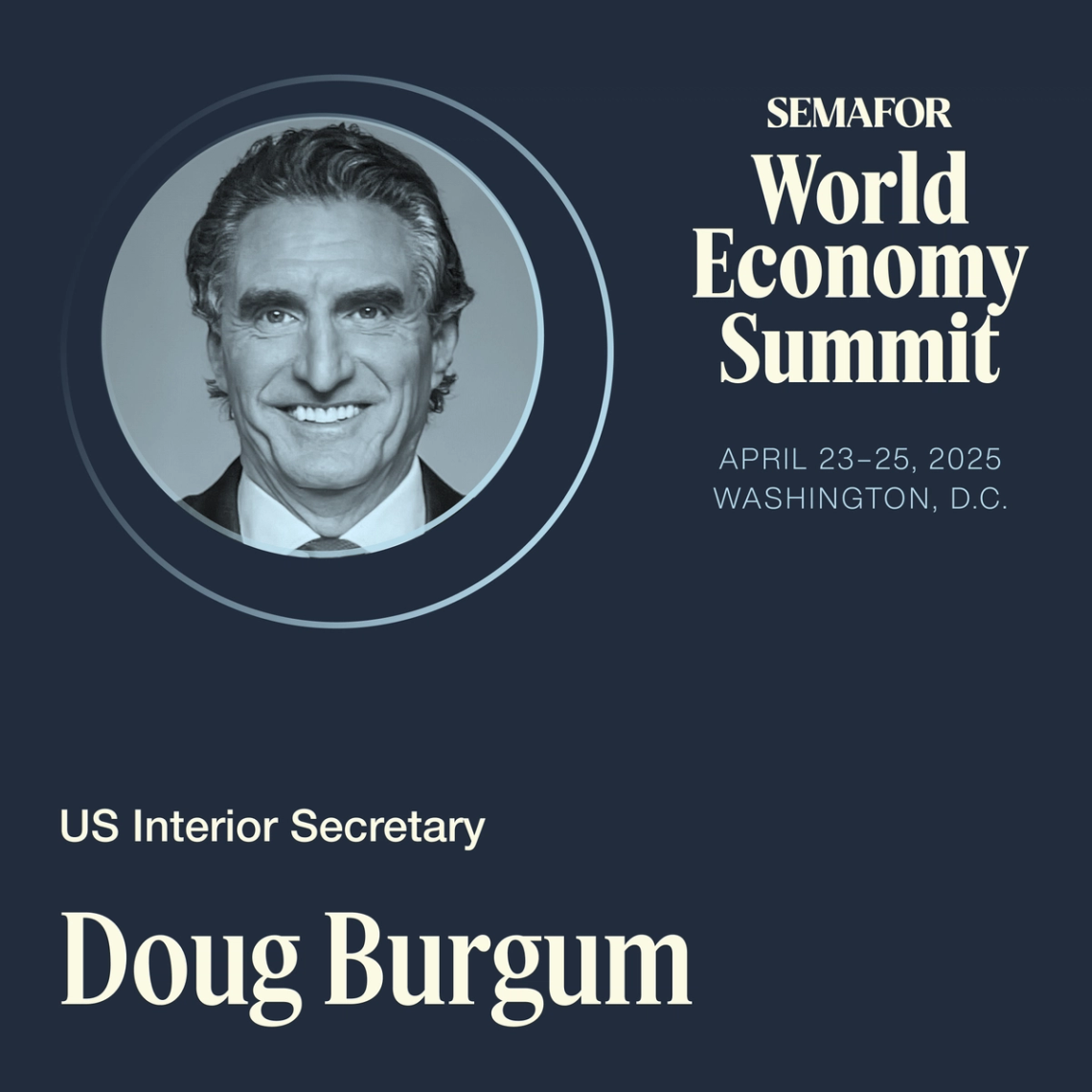 United States Interior Secretary Doug Burgum will join top global leaders at Semafor’s 2025 World Economy Summit. Taking place April 23–25, 2025, in Washington, DC, this will be the first major gathering of its kind since the new US administration took office. Bringing together leaders from both the public and private sectors — including congressional leadership, finance ministers, and central bankers — the three day summit will explore the forces shaping the global economy and geopolitics. Across twelve sessions, it will foster transformative, news-making conversations on how the world’s decision makers are tackling economic growth in increasingly uncertain times. April 23-25 | Washington, DC | Learn More |